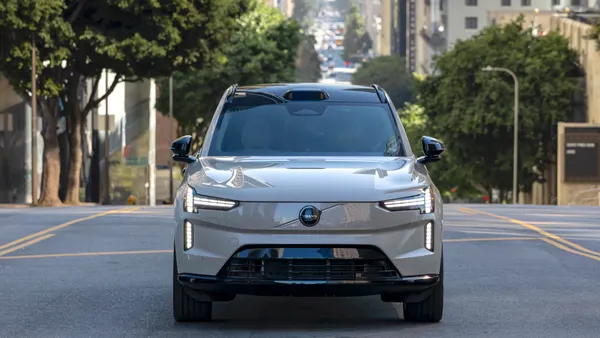Editor's note: This story is part of the WardsAuto digital archive, which may include content that was first published in print, or in different web layouts.
Volvo Cars is pulling the plug early on its diesel-powered models, pledging to sell its last one early next year. That’s some six years ahead of its proposed move to producing only battery-electric vehicles.
The Swedish brand is owned by Chinese automaker Geely, and China is pushing BEV technology with its home-country automakers in parallel with its dominant share of the earth’s resources for making automotive lithium-ion batteries.
Volvo has been long regarded as a champion of diesel internal-combustion-engine technology, selling family vehicles such as the Volvo 240D (1988 model, pictured below).
While Volvo’s announcement admits diesels emit less CO2 than gasoline engines, it stresses they emit more gases such as nitrogen oxide (NOx) that have an adverse effect on air quality, especially in developed areas.
Volvo began using Volkswagen diesel engines in 1979 for its larger vehicles, starting with 2.0L and 2.4L 4-cyl.s before adding a 6-cyl. 2.4L and a 5-cyl. 2.5L option, culminating in its own D4 that was phased out in 2017 after the notorious VW Dieselgate scandal saw consumer faith in diesel-powered vehicles destroyed.
The automaker makes its case for ceasing production of diesel engines at this week’s Climate Week NYC. Volvo intends to have a 100% BEV lineup by 2030.
Jim Rowan, CEO at Volvo Cars, says: “Electric powertrains are our future and (are) superior to combustion engines: They generate less noise, less vibration, less servicing costs for our customers and zero tailpipe emissions. We’re fully focused on creating a broad portfolio of premium, fully electric cars that deliver on everything our customers expect from a Volvo – and are a key part of our response to climate change.”










